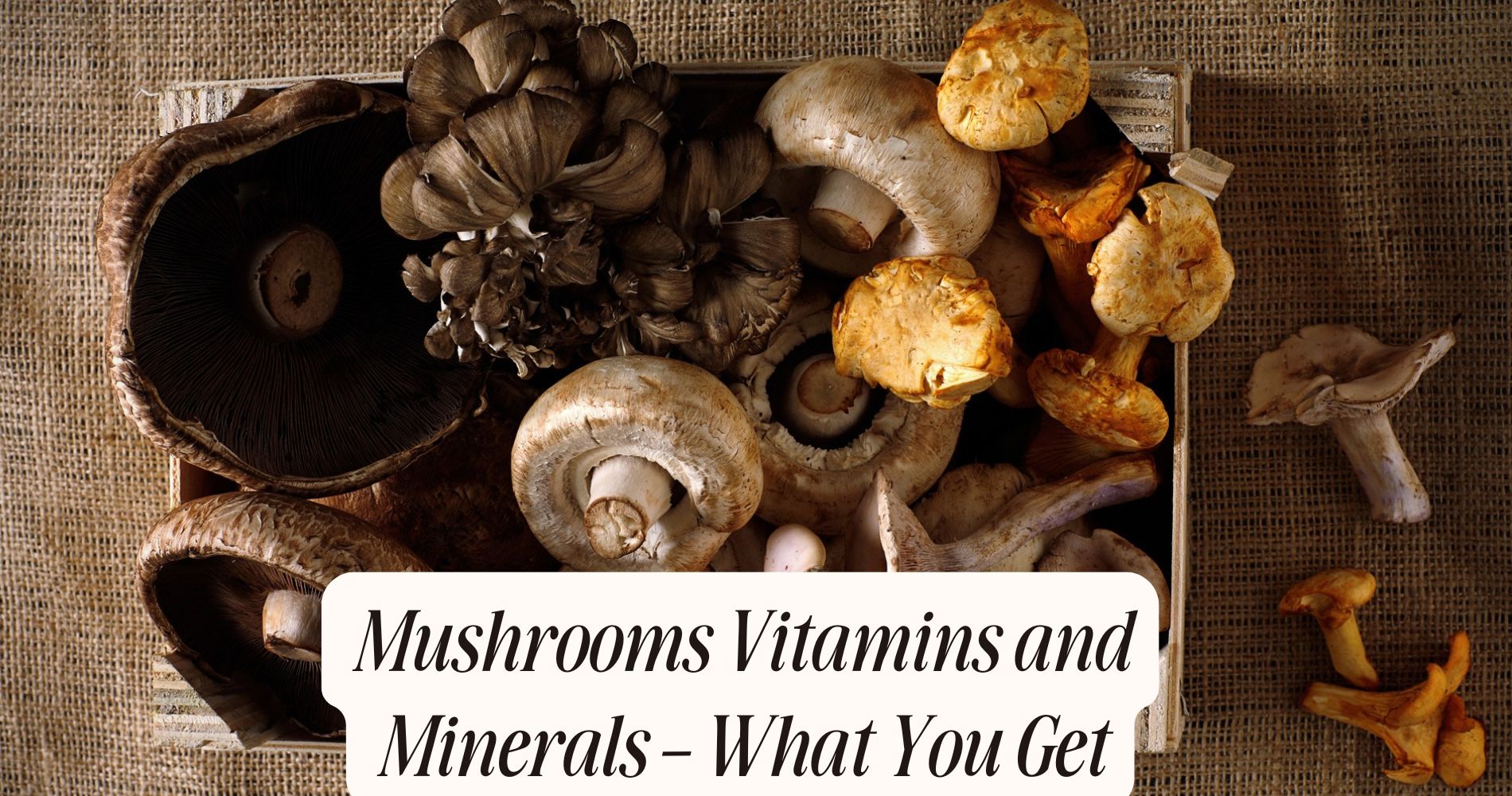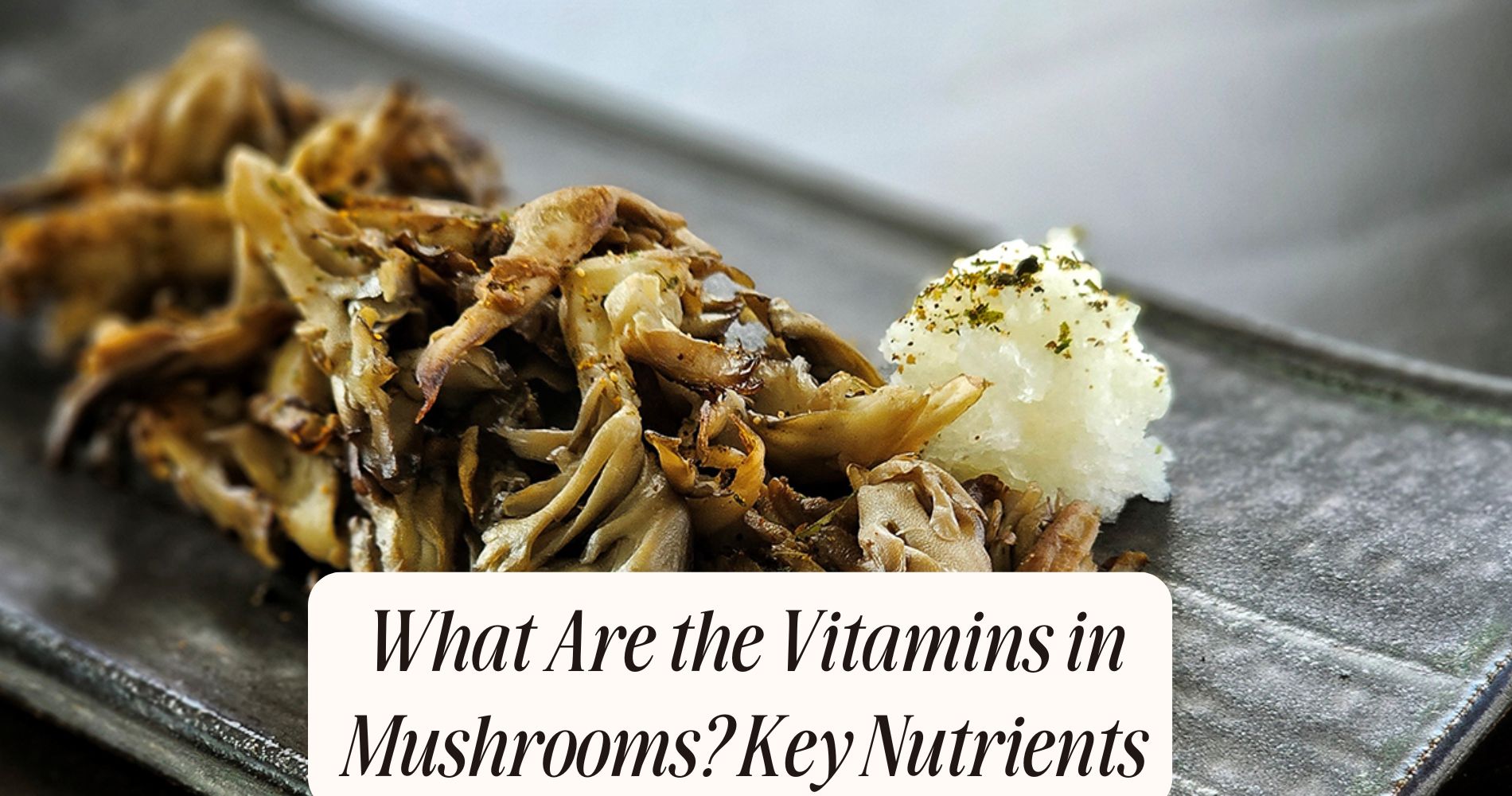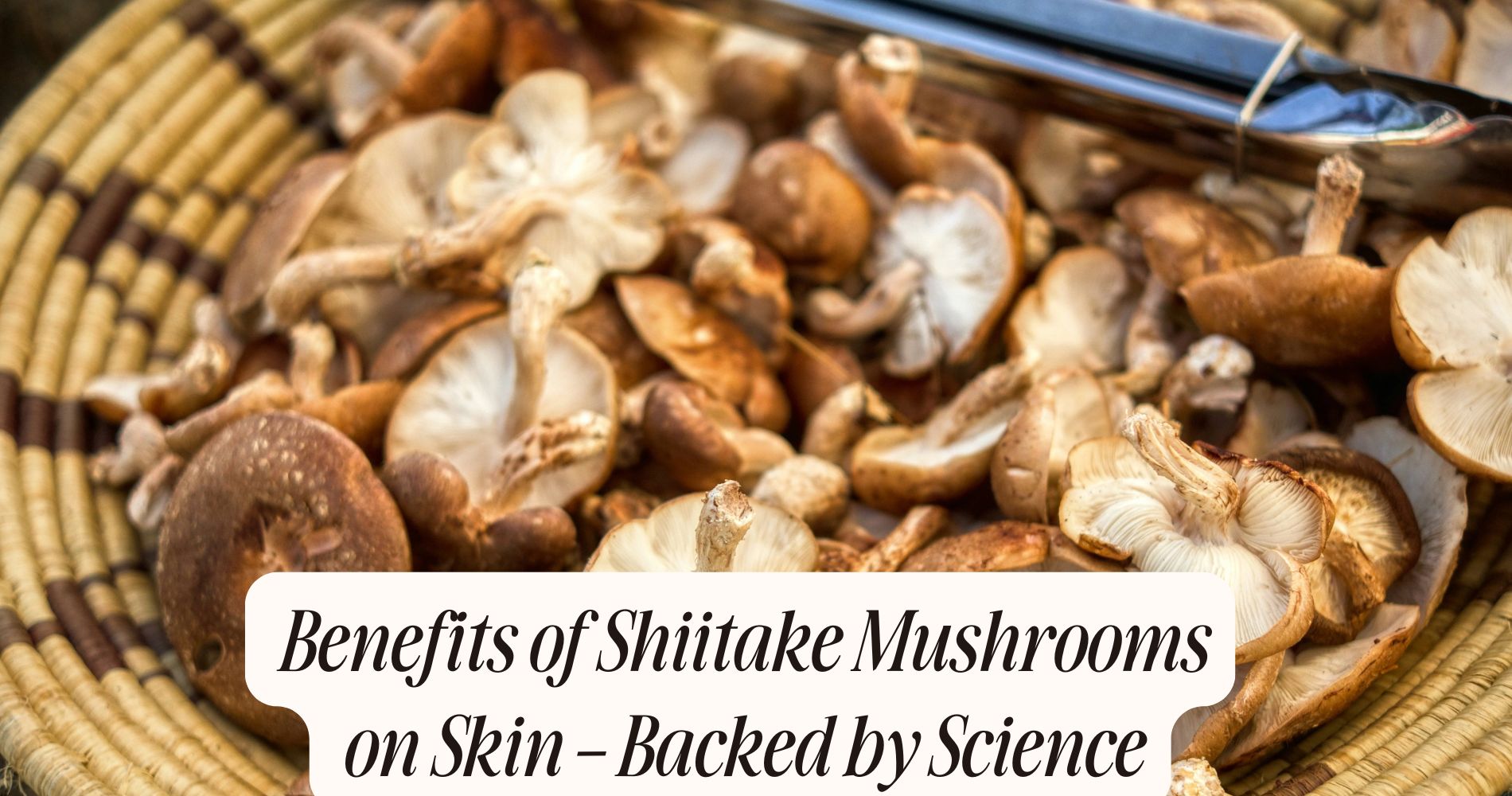
Mushrooms Vitamins and Minerals – What You Get
When you enjoy mushrooms, you’re tapping into a powerhouse of mushrooms vitamins and minerals. They’re rich in B vitamins like riboflavin and niacin, which help fuel your energy levels, and can even provide rare vitamin D2 when exposed to sunlight or UV light. Mushrooms also deliver essential minerals such as selenium, potassium, and copper—key players in supporting immunity, metabolism, and nerve function. Proper cooking enhances nutrient absorption, making mushrooms a smart and flavorful way to boost your overall health. Dive deeper to explore how mushrooms can elevate your nutritional game.
Essential B Vitamins Found in Mushrooms
Although you mightn't realize it, mushrooms are a rich source of essential B vitamins your body needs for energy and overall health. When you include mushrooms in your meals, you boost your intake of Vitamin B2, also known as riboflavin. This nutrient helps your body turn food into energy and supports red blood cell production.

Mushrooms also offer niacin and pantothenic acid, which help maintain a healthy nervous system and metabolism. However, if you’re seeking Vitamin B12, you should know that mushrooms contain only trace amounts and aren’t a reliable plant-based source.
You’ll likely need B12 supplementation, especially if you follow a vegetarian or vegan diet. By making mushrooms a regular part of your diet, you’ll support your body’s B vitamin needs effectively.
The Unique Role of Mushrooms in Vitamin D Intake
Beyond B vitamins, mushrooms stand out as one of the few non-animal foods that can provide vitamin D. When exposed to sunlight or ultraviolet (UV) light, mushrooms naturally produce vitamin D2, a form your body can use to support healthy bones and immune function.
If you’re looking to boost your vitamin D intake from plant-based sources, mushroom vitamin D offers a distinct advantage—many fruits and vegetables lack this nutrient entirely. Including UV-exposed mushrooms in your meals can help improve your vitamin D absorption, especially if you spend little time outdoors or follow a vegan diet.
Research shows that just a serving of these mushrooms can contribute markedly to your daily needs, making them a practical and nutritious choice for better vitamin D status.
Important Minerals in Mushrooms: Selenium, Potassium, and Copper
When you add mushrooms to your diet, you’re getting more than just vitamins—they’re also a notable source of key minerals like selenium, potassium, and copper. Research shows that fungal mineral content varies by species, but common varieties such as cremini, shiitake, and white button mushrooms consistently offer these minerals in meaningful amounts.

Selenium supports antioxidant defenses and thyroid function, while potassium helps regulate fluid balance and nerve signals. Copper is essential for red blood cell production and energy metabolism.
Mushrooms’ unique cell structures contribute to efficient mushroom mineral absorption in your body, making them a valuable addition to a balanced diet. By including mushrooms regularly, you’ll boost your intake of these essential minerals without adding excess calories or sodium.
How Mushrooms Support Immune and Metabolic Health
Because mushrooms contain a unique blend of bioactive compounds, they play an important role in supporting both immune and metabolic health. You’ll benefit from their antioxidant properties—thanks to selenium, ergothioneine, and glutathione—which help neutralize free radicals and reduce oxidative stress that can weaken the immune system.
Mushrooms also offer beta-glucans, natural fibers shown in studies to enhance the activity of immune cells, helping your body defend against pathogens.
On the metabolic side, B vitamins in mushrooms—like riboflavin, niacin, and pantothenic acid—support energy production and help convert food into fuel efficiently.
Their culinary versatility makes it easy to incorporate these nutrients into your diet, whether you add mushrooms to stir-fries, soups, or salads, boosting both flavor and nutritional value.
Tips for Maximizing Nutrient Absorption From Mushrooms
Although mushrooms are packed with essential vitamins and minerals, how you prepare and consume them can greatly influence how well your body absorbs these nutrients.
To maximize absorption, focus on cooking methods like grilling, microwaving, or sautéing, as these preserve antioxidants and make nutrients like B vitamins and minerals more bioavailable. Avoid boiling mushrooms for long periods since water-soluble nutrients can leach out.

For storage tips, keep mushrooms in a paper bag in the fridge to maintain freshness and minimize nutrient loss. Wash them right before use to prevent premature spoilage.
Pairing mushrooms with healthy fats—like olive oil—can also enhance the absorption of fat-soluble nutrients.
Complete Mushroom Nutrition Made Easy: SUPER MUSHROOM GUMMIES
Now that you know the benefits of mushrooms vitamins and minerals, why not enjoy them in a convenient and delicious form? Well Gummies' SUPER MUSHROOM GUMMIES deliver the goodness of 10 functional mushrooms—rich in key nutrients like B vitamins, selenium, and more—in one easy, chewable gummy. These vegan gummies naturally support brain health, energy, and immunity, all with a tasty wild berry flavor. No cooking, no prep, no crash—just smooth, steady wellness to help you shine all day. Nourish your body and mind effortlessly with Well Gummies!
Frequently Asked Questions
Are Mushrooms Safe to Eat Raw or Should They Always Be Cooked?
You can eat some mushrooms raw, but raw consumption may limit nutrient absorption and expose you to mild toxins. Cooking benefits include breaking down tough cell walls, boosting nutrient availability, and reducing potential health risks, making cooked mushrooms safer.
Can People With Mushroom Allergies Get Vitamins From Other Sources?
If you’ve got a mushroom allergy, don’t worry—you can get those nutrients from allergy alternatives like leafy greens, nuts, or supplement options. Evidence shows these sources offer similar vitamins and minerals, supporting nutrient-focused diets.
Do Wild Mushrooms Have More Nutrients Than Cultivated Varieties?
When you compare wild versus cultivated mushrooms, you'll often find wild varieties offer greater nutrient diversity. Research shows they're richer in certain vitamins, minerals, and antioxidants, but nutrient content can vary widely based on species and growing conditions.
How Do Mushroom Supplements Compare to Whole Mushrooms Nutritionally?
When you take mushroom supplements, you might get higher nutrient concentration, but your body’s supplement absorption can vary. Whole mushrooms offer fiber and more complete nutrition, while some supplements may lack certain beneficial compounds or have inconsistent potency.
Are Mushrooms Suitable for People Following a Vegan or Gluten-Free Diet?
If you're focused on plant based nutrition or have dietary restrictions, you'll find mushrooms fit perfectly. They're naturally vegan and gluten-free, delivering essential nutrients without animal products or gluten, making them a smart, evidence-based choice for diverse diets.
Conclusion
When you add mushrooms to your meals, you’re getting a powerhouse of B vitamins, vitamin D, and minerals like selenium, potassium, and copper. These nutrients support your immune system and metabolism, and research shows they play a crucial role in overall health. For the best benefits, cook mushrooms to boost nutrient absorption. So, don’t overlook these nutrient-rich fungi—they’re a simple, evidence-backed way to enhance your diet and support your body’s natural functions.




